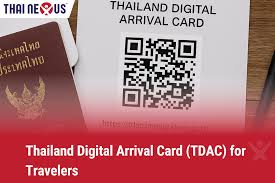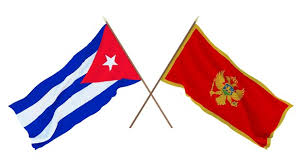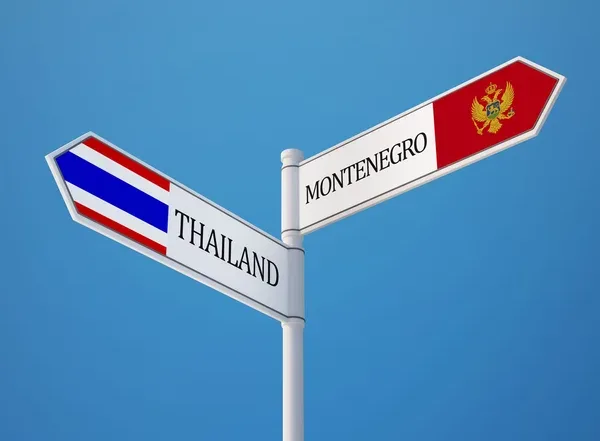Protection of assets by a trust company
Protection of assets by a trust company

offshore trust companies
If you are not familiar with the concept, trust companies offer an interesting way to protect your assets abroad and for international tax planning. However, unlike a simple offshore bank account, such a structure requires additional measures to function optimally.
When there is no other way to achieve your goals, a carefully structured trust can often provide a good solution.
protection of assets
An offshore trust company may provide the best possible protection for your assets, much like a bulletproof vest.
By using an offshore asset protection trust, you can potentially protect your assets from taxes when no other option is available.
Despite this, trusts are often a mystery to many, including banks, governments and individuals. This is partly because in many parts of the world there are no specific laws governing trusts.
What is a trust company?
I often hear clients say, “The Trust will own it?”
In reality this is not technically correct as a trust does not exist as a separate legal entity unlike a corporation which is considered a separate legal entity in most countries. Rather, a trust is a relationship between people and assets.
Basically, in a trust there is often a separation between the ownership, use and control of assets. Much like employees of a company do not benefit directly from the company’s profits, a trust can help ensure that the person who owns something does not necessarily benefit from it.
In its simplest form, a trust consists of a relationship between three parties:
• The Settlor/Grantor – the person setting up the trust
• The trustee – the person who legally owns and normally administers the property
• The beneficiary – the person who ultimately receives the benefits of the property. There can also be multiple beneficiaries.
A so-called “deed of trust” governs the relationship between these parties. This is a document or agreement that sets out the roles of the various parties and the terms of how the trust will be managed.
The trust consists of all assets entrusted to the trustee by the settlor/grantor. The trustee holds these assets in trust and possibly in an offshore bank account for the beneficiaries. The trustee ultimately passes on the benefits of those assets to the beneficiaries when the terms of the trust deed are met.
For example, it is common for grandparents not to pass their wealth directly to their grandchildren, but instead set up a trust. The assets are held in trust until the grandchildren reach the age of 18 or later to cover educational and medical costs.
In some cases, things can get more complicated when the testator is acting as a trustee themselves or there are additional roles in the trust, such as a protector.
There are also instances where a person acts as a trustee even though they have not been officially designated as a trustee.
A trust is a legal entity that holds, administers, and potentially transfers assets to beneficial parties on behalf of individuals or corporations in trust. For example, it can serve as a custodian of trusts, estates, stock transfers and wealth management.
Trust companies operate on the basis that they do not own the assets assigned, but merely have the power to administer them on behalf of other parties. An individual or company transfers their assets to a trustee of a trust company who acts in accordance with the terms of the trust deed prepared at the request of the transferor. This person is also known as a settlor or grantor. The trust manages the assets for a fee and then distributes them to beneficiaries designated by the transferor.
It is important to note that there are different types of trusts that can be used for different purposes. Some offer the settlor control of the estate for the rest of their lives, while others relinquish control. Also, there are trusts where it is possible to take the assets out of trust while others do not.
Trusts are often used for two purposes: to administer inheritances (sometimes referred to as dynasty trusts) or to protect assets from creditors (also referred to as asset protection trusts).
When dealing with an asset protection trust, it is important to note that assets may be withdrawn from the trust in cases of fraudulent transfer if sufficient time has not elapsed since the trust was formed.
Suppose someone is being sued and wishes to place their assets in a trust to protect them from the lawsuit. If the transfer is deemed to be fraudulent because there is an intent to defraud creditors, the assets of the trust may be withdrawn. In most cases, the assets must be placed in the trust for at least two years before they are threatened, although this can vary by jurisdiction.
It is therefore important to be very careful when choosing the right jurisdiction and to be aware that the choice of law is not always to your advantage if the content does not match well. If you need more information on this topic, please feel free to contact us.
One way to protect assets from a lawsuit is to use a trust. However, it is of great importance that the trust is set up correctly to avoid undesirable results.
If you work in a company that has a high risk of being sued, it might make sense to set up an appropriate trust structure to avoid future loss of wealth.
A trust can protect not only you or your company’s assets, but your personal assets as well. When you deposit assets into a properly structured trust, you technically no longer own them. Thus, a creditor cannot take assets out of a trust because they are out of his reach. However, it is important to note that there may be exceptions to this, so the details matter.
Trusts are also a powerful tool to protect your heirs. For example, you can give a certain amount of money for education, healthcare, or starting a business, and trusts ensure that the money is only used for your intended purpose. If your heirs are sued, these assets are protected by the trust and cannot be confiscated. However, it should be noted that trusts are very complex and it is the details that count to ensure they are structured correctly. Therefore, it is advisable to consult a professional to avoid mistakes and unnecessary expenses.
A trust is considered an offshore trust when it is established in a foreign jurisdiction, usually characterized by a favorable tax or legal environment. Such a trust can be used to protect assets from certain national tax laws or creditors, but also to make international investments or to minimize inheritance taxes. An offshore trust can also offer higher levels of confidentiality than a domestic trust because it has been established in a jurisdiction that ensures a high level of discretion and anonymity.
However, it is important to note that the establishment of an offshore trust may entail strict regulatory requirements and tax implications in some jurisdictions.
• For example, if the assets are overseas, is it an offshore trust or a domestic trust?
• If the beneficiaries are overseas, is it an offshore trust or a domestic trust?
• If the trustee is overseas, is it an offshore trust or a domestic trust?
The list goes on.
It is helpful for our purposes to understand that there are three jurisdictions (regions where laws apply) to consider when it comes to trusts. These are:
Jurisdiction of registration – Trusts are usually registered somewhere, similar to a company, but it is worth noting that, for example, a Quistclose Trust is not formal and obviously not registered anywhere, but the trust relationship still exists and could be confirmed by courts.
Jurisdiction of administration – This is essentially the location from which the trust is administered, roughly speaking where the powers of the trustee are exercised or will be exercised.
Jurisdiction – Here, in the event of a dispute, the laws of the trust will be applied.
This creates the complex reality that trusts can be multijurisdictional in principle. So people sometimes talk about Cook Islands trusts or Nevis trusts and ask, “Where is the trust based?” but perhaps it is registered and decided in Nevis, but managed from somewhere else, or some variation thereof.
For the purposes of various governments around the world, a trust may be considered a domestic trust (or a trust subject to their local laws) based on one of the three factors mentioned above, or where the settlor comes from or where the beneficiaries are located.
For example, Canada has generally assumed that the administrative and control rules for the corporate seat (a fancy term for when a corporation, with all its worldwide income, is subject to Canadian tax regulations) also apply to trusts.
It is important to emphasize that trusts not only serve as an asset protection tool, but can also be useful in many other situations such as estate planning, securing control of assets or philanthropic use of assets.
Trusts allow the settlor to retain some control over their assets while ensuring that those assets are used in accordance with their wishes. In addition, trusts can also allow for effective tax planning, as certain assets placed in a trust may no longer form part of the settlor’s taxable income.
In summary, trusts are a powerful structure due to their flexibility and adaptability to different needs and goals. However, it is important to emphasize that trusts are indeed very complicated and that careful planning and implementation is required to fully realize their benefits.
There are tax rules, like the CFC rules, based on asset ownership. But what if you don’t actually own the asset? It is important to note that trusts are not a miracle solution and there are no guarantees that they will be protected from court action or that special tax rules can be circumvented. Each country has its own laws and it can be very complicated, so it is advisable to seek expert advice to clarify your individual situation.
However, it is true that with careful planning and management, trusts can be a powerful tool to achieve things that would otherwise not be possible. The key to success is thorough planning and proper management.
It is not possible to simply transfer assets into a trust to protect them from potential lawsuits. Fraudulent transfers, where an attempt is made to defraud a creditor, are prohibited in many countries and there are limited time frames to determine if they are valid or can be reversed.
There are many legal scenarios that can arise and it is impossible to cover them all here. We recommend that you contact us for a personal conversation.
It is true that trusts originate from common law and therefore do not automatically exist in most parts of the world. But it is important to note that a citizen of a country that does not have trust laws can still be a beneficiary of a foreign trust. It is therefore advisable to consult a professional to discuss your specific situation.
There are basically three ways trusts are treated and recognized, this being an oversimplification to understand the general concept:
Countries with their own trust laws – these are usually common law countries where trusts are part of the local legal system.
Countries without their own trust law but which have accepted some form of trust recognition – this is most common for signatories to the Hague Convention on the Applicability of Trusts and their Recognition. This means that local courts will recognize foreign trust law between signatories when those trusts operate locally and have been formed to hold large amounts of money and encourage countries to invest locally.
Countries that have had to deal with foreign trusts without having their own trust laws and how they chose to deal with them. This is a historic development in which foreign trusts emerged and operated in a country that did not have their own trust laws, resulting in different approaches to the treatment of those trusts.
So there are countries that recognize trusts and have a legal basis to do so, countries that do not recognize trusts but can recognize foreign trusts in some way, and countries that reject trusts entirely and do not recognize them.
It is important to note that the recognition of trusts in a country can have tax implications. Countries without trust laws may not be able to deal appropriately with foreign trusts, which may result in tax consequences for the trust beneficiary. An example of this is Spain and France, which do not have trusts and therefore may levy taxes on assets held in trusts abroad, even if they are held for local beneficiaries.
Finally, it can be difficult to set up a trust relationship in the sense of the trust deed in some countries. However, this does not mean that the settlor, trustee, beneficiary or protector cannot be located in one of these countries, thereby opening up further options.
Trusts are extremely complex matters and it is advisable to contact us to discuss your specific requirements. A trust can be a suitable option to achieve goals such as wealth protection, estate planning, asset structuring or tax planning.
However, because trusts are very complex, it is unlikely that you will fully understand all aspects of country-specific regulations, administrative intricacies, the potential of offshore wealth protection trusts and the tax consequences if you only research online.
—————-
We’ve helped hundreds of people move their businesses overseas, legally reduce their taxes, and become dual citizens. We are focused on high-net-worth individuals and their families as well as corporations wishing to invest their offshore companies or even secure their wealth in offshore financial centers around the world. We will help you to find the best solution for setting up an offshore or onshore company. Another special area of our full-service consulting is the investment opportunity and solution in Europe, especially in the Balkans, Africa, Asia, UAE, the Caribbean and the Pacific.
If you are looking for it, please feel free to contact us. We create a holistic plan that serves your purpose.
TCME – Group worldwide is a leading professional International Business Investment and Advisory Firm for Foreign Economic Relations, with 17th. departments in different Countries around the world and the Headquarter in Malaysia.
GCI UNIT Worldwide, designs and implements customized, holistic strategies for successful investors and entrepreneurs to legally reduce their tax bills, diversify and protect their wealth, invest abroad, gain a second citizenship and live a freer life worldwide to lead.
YOUR CHANCE FOR A BETTER LIVE
GCI Unit Worldwide firm is a professional International Business Investment and Advisory Firm for Foreign Economic Relations. Our range of services includes:
• Offshore and Onshore Company Formation,
• executive Search,
• IT & Cyber Security Protection
• African Gold & Diamonds
• international Business & Management
• Citizenship & Residency
• Investments & Corporate Financing
• Mining and Trading
• Advisory for Foreign Economic Relationship
• Diplomatic Consultancy & Public Affairs
If you would like to discuss your internationalization and diversification plans, book a consulting session* or email us under: [email protected]
*A counseling session is a conversation about your portfolio and goals. It does not constitute legal, financial, tax or investment advice.
Department GCI – Unit Global Citizenship Investment (GCI Unit worldwide)
by TCME Worldwide Group – Global Investments –
Level 33, Ilham Tower, 8 Jalan Binjai,
Kuala Lumpur 50450, Malaysia
www.tcme.company
www.citizenship-news.com
Phone: +66 99091 8357 also for WhatsApp





